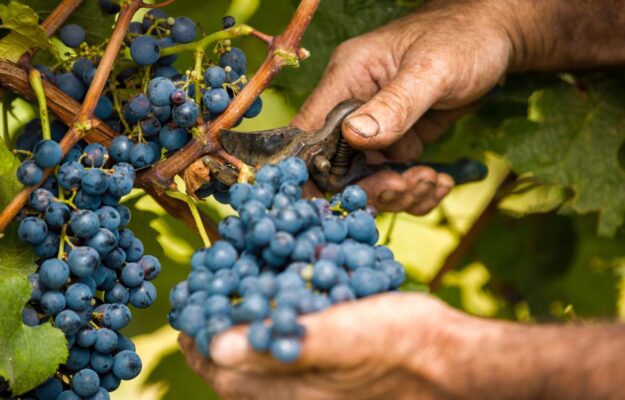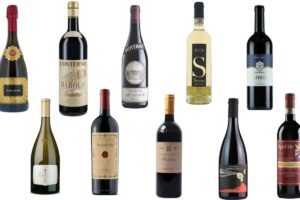More controls, “certification” for procurement contracts, but also technology, teamwork and territorial “mapping” to monitor a key sector that, however, is not immune to critical issues. In the Agriculture Law Decree, which is already a reality, actions to fight against illegal employment and more have found space. And, given the season, the grape harvest, with its economic weight, its spread almost “at the same time” throughout Italy, and also with the media clamor generated by the latest unacceptable episodes ascertained in a symbolic territory such as the Langhe, will have all the attention on it, and it will be an important test case. Then again, even recently, there has been no shortage of serious episodes that have made noise, showing a “cross-section” that hurts the eyes and the heart. The phenomenon of illegal employment has come to the fore again this summer, gaining a significant media echo in the face of situations that have gone far over the line, as, unfortunately, happened in Latina. And then a whole series of events that, from the North to the South of Italy, have brought to light a rain of irregularities and complaints following controls carried out with the “scourge” of labor exploitation that has also affected the vineyards of the Langhe.
Wrong, however, to “lump everything together”, for a sector like agriculture (including wine) in which 1 million people work and where so many companies do their duty with commitment and sacrifice, respecting the law. But that all is not well is something well known and, to say it, the numbers are there. Suffice it to say that in 2023, in the agricultural sector alone, the Inps canceled more than 27,000 irregular contracts and reported 425 workers, compared with 669 inspections in the agricultural sector, out of a total of 9,202 inspections carried out, which led to production results of the total ascertained amounting to 982.4 million euros (+46%). On the issue of occupational safety, then, the guard should not be lowered. According to Inail, in 2023, out of 585,356 reports of accidents in the workplace, overall (-16.1% on 2022), 26,096 come from the agricultural sector (+0.4%). Fatal cases, across all sectors, totaled 1,041, -4.5% over 2022, with 119 in agriculture (up from 118 in 2022). This is an issue of immense relevance that calls into question many factors: business ethics, the very low profitability of some agricultural sectors, but also the lack of labor and the need for foreign workers, without whom Made in Italy, in fact, would not exist. According to Fai-Cisl data, there are more than 358,000, 31% of the total, from 164 different countries, of which 67% are non-EU, personnel with a fundamental role in the stables, in fruit picking, among the vineyards of Italy and beyond. People who contribute to a supply chain, the agrifood one, that is traveling at a fast pace and that, at the export level, aims to shatter a new record, that of 70 billion euros in value to be reached in 2024.
In the recent Agriculture Decree-Law, which became law, reference is made to the “dignity of agricultural labor” and, therefore, to the fight against illegal employment and measures to promote the safety of those working in the countryside. A package of measures to increase inspections in the field is demonstrated by the fact that Inps and Inail, in 2024, will be able to hold competitions to hire up to 514 new inspectors (403 Inps, 111 Inail). But among the new features, to strengthen controls on labor and social legislation in the agricultural sector is the establishment at the Inps of the Database of Contracts in Agriculture, which can be accessed by inspection personnel from the National Labor Inspectorate, the Carabinieri Command for Labor Protection, the Guardia di Finanza and Inail. Enterprises intending to participate in contracts in which the commissioning enterprise is an agricultural enterprise will, in fact, have to register in the Data Bank: therefore, the qualification requirements of the contractor including those of the insurance surety policy to guarantee social security contributions and insurance premiums due in relation to the period of execution of the contract and the salaries due to the workers employed by the enterprise and who are employed in the contract will be identified by a special decree. Upon verification that the requirements are met, Inps will issue a certificate of compliance to the applicant enterprise, and upon signing the contract, enterprises will issue the insurance surety bond to the principal. The attestation will be compulsory for the conclusion of the contract in the agricultural sector, its lack will lead to an administrative fine of 5,000 to 15,000 euros (excluding the application of the warning procedure) which, for a period of one year from the notification of the offence, prevents registration or permanence in the Quality Agricultural Work Network.
A measure, that of the Data Bank, which can counter any distorting phenomena on the procurement of services, raising protection for farms and workers, including the wine world. In addition, at the Ministry of Labor, the Information System for Combating Corporal Labor in Agriculture has been established: this is a tool for sharing information between state administrations and regions, including for the purpose of combating undeclared labor in general. It was established by the Ministry of Labor and Social Policy, the Ministry of Agriculture, the Ministry of the Interior, the National Institute of Social Security (Inps), the National Institute for Insurance against Accidents at Work (Inail), the National Labor Inspectorate (INL), the Agency for Disbursements in Agriculture (Agea) and the National Institute of Statistics (Istat). As Inps itself pointed out, “the agriculture decree-law establishes an inter-operational database between Inps and Agea at the service of all the institutions involved, to develop a joint strategy to combat a phenomenon of worker exploitation in agriculture. Agea will play a key role, making available accurate and certified data on farms, which will be entered into a common database, from which other institutions will be able to draw, in order to verify information on the crops and livestock farms carried out for each calendar year and the cadastral parcels on which the land is located. The agreement also provides for the creation of a geospatial platform with the use of Artificial Intelligence algorithms to represent automatic risk elements related to the fight against illegal employment”. In particular, Agea “will have an operational and fundamental role”, because it will have to “map greenhouses, shantytowns and farms, in order to create a platform capable of identifying companies located throughout Italy and selectively chosen using alert criteria”. Against illegal employment, moreover, the Inps, “in addition to checking documentation, has activated multilingual listening and information desks in the territorial inspectorates; then, activities have been launched to raise awareness among migrant workers, focusing on rights and duties in the labor relationship, as well as on the risks related to labor exploitation and, also, on the mechanisms for protecting victims”.
The Agriculture Decree arrives just weeks before the start of the grape harvest, and the wine world will be among the first to “experience” the novelties: “after the unspeakable facts of Latina, all measures to fight against illegal employment are welcome”, Roberto Caponi, director of Confagricoltura Labor Policies Area, the largest employer organization in Italian agriculture, explained to WineNews, “and Confagricoltura has always been at the forefront in fighting this ugly phenomenon. We shared on this issue the government's actions, starting with the cross-referencing of databases, an “intelligence” operation that will certainly be useful, first and foremost, in selecting companies for inspection. The impression is that we always go to the same companies. But inspections, rather than on detail, should focus on macro-irregularities”. On the issue of service contracts in agriculture, which also affects the wine world, “the news is positive because the inclusion in a special list is a transparency operation. The important thing, however, is that we do not paralyze the system”. Concretely, what can change for the wine world? “Having said that the 'high road' is that of direct hiring”, Caponi adds, “there is still a known difficulty due to labor shortages, and that is why stages of the production process such as harvesting operations are being outsourced. What is new is that it will only be possible to do so if the company is included in a special list and issues the surety bond obtaining certification. Only then will it be able to operate”. It remains to be seen, however, whether it will already be able to be active for the next harvest since “it needs an implementing decree”, Caponi points out, and considering that the law has only been a reality for a few days, with summer in its peak and a grape harvest now in its infancy, it is all to be seen.
Returning to the issue of the search for seasonal grape pickers, Confagricoltura Labor Policies Area director Roberto Caponi had recently explained to WineNews that “contracting out external services is also possible in agriculture, of course. But if it is limited to the simple procurement of unprofessionalized labor, if, for example, it is only hand-picking grapes, there are no mechanical means involved, there is a risk that any contracting is not considered “genuine”. Let’s say that Italian law does not expressly prohibit it, but one has to be careful and strict when contracting out services, which cannot be the mere procurement of poorly professionalized labor”.
What changes now with the new law? “Let’s say that the system becomes more “rigid” because the factor of “genuineness” is determined by listing with all the requirements”. But isn’t there a risk that the news could slow down labor procurement operations, a particularly delicate and urgent issue for companies? To know “we will have to wait for the interministerial implementation decree”, Caponi concludes, “and the hope is that it can be a simple and streamlined system”. The Agriculture Decree Law (500 million euros for the sector) that has become law is thus intended to open a new page for the agricultural sector, with the certainly difficult goal of finding the synthesis between a necessary evolution of labor safety and the needs, labor first and foremost, of farms. A challenge that, over the years, has not found a definitive track to follow.
Copyright © 2000/2026
Contatti: info@winenews.it
Seguici anche su Twitter: @WineNewsIt
Seguici anche su Facebook: @winenewsit
Questo articolo è tratto dall'archivio di WineNews - Tutti i diritti riservati - Copyright © 2000/2026
























































































































































































